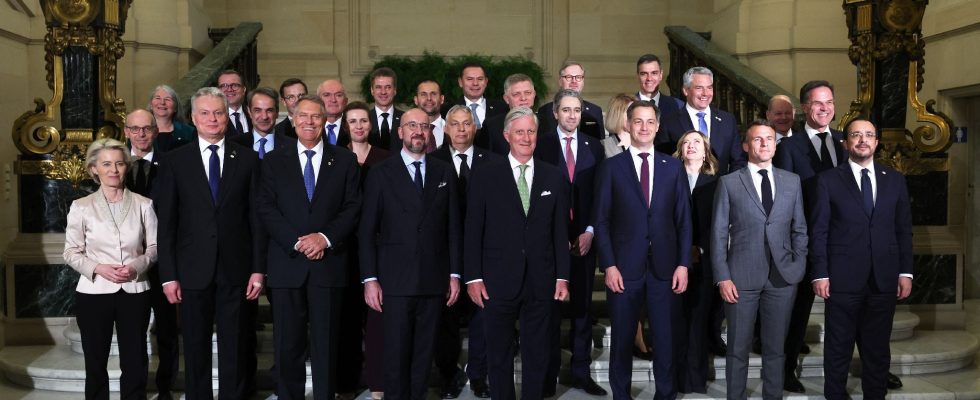Israel “reserves the right to protect itself” against Iran, maintains its Prime Minister Benjamin Netanyahu, whose government, according to media reports, once considered rapid retaliatory strikes against Tehran after the weekend attack , before withdrawing in the face of pressure from the United States. But the Israeli authorities repeat that this Iranian attack will not go “unpunished”, without however specifying the contours of this response.
Information to remember
⇒ The EU will impose sanctions against Iran
⇒ IDF continues to target the Gaza Strip
⇒ A vote on the recognition of the Palestinians at the UN.
EU to impose sanctions on Iran
The European Union decided on Wednesday to impose new sanctions against Iran targeting drone and missile producers, said European Council President Charles Michel.
“We decided to impose sanctions against Iran, we wanted to send a clear message” after the attack on Israel, he declared after a summit in Brussels bringing together the leaders of the 27 countries members. “The idea is to target companies that have a role in manufacturing drones and missiles,” he added.
Iran attack will not go “unpunished”
Israeli authorities repeat that the Iranian attack will not go “unpunished”. According to Israeli and American media, the Netanyahu government did consider carrying out rapid retaliatory strikes in Iran but ultimately revised its plans, under pressure from the United States. According to the Israeli public broadcaster Kan, Benjamin Netanyahu decided not to implement pre-approved plans for retaliatory strikes in the event of an attack, after discussions with US President Joe Biden, who is trying to avoid a direct Iran-Israel confrontation risking dragging the Middle East into a spiral of conflicts.
“Diplomatic sensitivities played a role […] There will be a response but it will be different from what was initially planned,” a senior official told the channel on condition of anonymity. Sources also told the American site Axios that the war cabinet had juggled, during a meeting on Monday with the idea of giving the green light to strikes, without however ordering them According to the American channel ABC, the Israeli government twice considered strikes against Iran without taking action.
Several of Israel’s allies call for “restraint”
Visiting Israel, German Foreign Minister Annalena Baerbock on Wednesday April 17 called on all parties to exercise “restraint.” “I’m not talking about giving in, I’m talking about intelligent restraint here,” declared the first foreign official to travel to Israel, with her British counterpart David Cameron, since the Iranian attack at the weekend.
The United States, Israel’s staunch ally, said it did not want “an extended war with Iran” but announced new sanctions against Tehran on Tuesday. The US House of Representatives is due to hold a series of separate votes on Saturday to release $61 billion for Ukraine and more than $26 billion for Israel.
New victims in Gaza
During the night from Wednesday to Thursday, witnesses reported deadly Israeli strikes in the Gaza Strip where the military offensive left 33,899 dead in more than six months, most of them civilians, according to the Gaza Ministry of Health. Hamas.
The UN, which fears widespread famine in the territory of 2.4 million inhabitants, launched an appeal on Wednesday for donations of 2.8 billion dollars to help the Palestinians in Gaza and the occupied West Bank. Benjamin Netanyahu refuted “the allegations of international organizations about a famine in Gaza” and affirmed that Israel was doing “everything possible on the humanitarian issue”.
Exchanges of fire on the Lebanese front
In addition to Hamas and Iran, Israel also faces fire from Lebanese Hezbollah, an ally of Tehran and the Palestinian Islamist movement.
Hezbollah announced Wednesday that it had struck a military base in northern Israel, in response to strikes that killed three of its fighters. Fourteen Israeli soldiers were injured, six of them seriously, according to the Israeli army.
Vote at the UN on the recognition of a Palestinian state
In this context, a vote by the UN Security Council at the initiative of Algeria, on the Palestinians’ request to become a full member state of the United Nations, should take place on Thursday or Friday, several indicated. diplomats. The initiative appears doomed to failure, due to opposition from the United States, which has a right of veto in the Council.
